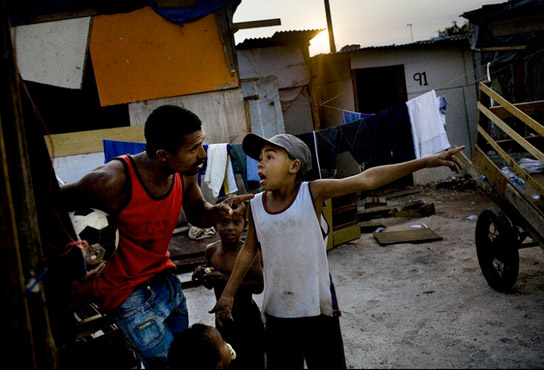One of the Special Rapporteur’s functions is to receive complaints on violations of the right to adequate housing. When the Special Rapporteur receives a complaint, s/he contacts the government of the country involved and requests explanations and additional information. To send a complaint, click here.
The Special Rapporteur may also remind the relevant government of their international obligations related to the right to adequate housing and suggest measures to remedy the alleged violations.
There are two types of correspondence used by the Special Rapporteur for entering into dialogue with countries:
1) Urgent appeals: when thesituation is very serious and/or there is imminent risk and the situation demands quick action
2) Allegation letters: for violations that already occurred or other violations not covered by the urgent appeals
All communications between the Rapporteur and governments are confidential until publication in a report submitted to the Human Rights Council.
The steps for all official communications are:
a) The Rapporteur’s support staff in Geneva receives the complaint
b) The complaint is forwarded to the country’s diplomatic mission in Geneva
c) The country’s diplomatic mission sends the complaint to the corresponding Ministry of Foreign Affairs or related office
d) The Ministry of Foreign Affairs or related office forwards the accusation to the relevant Ministry
e) The relevant Ministry sends it to the proper local government, if the situation is related to the local government
f) The responding government follows the same steps in reverse to answer the Rapporteur’s communication.
Below you can find public communications between the Special Rapporteur and governments.
2010 / 2009 / 2008 / 2007 / 2006 / 2005
View the communications by year
2014
Countries: Spain, Angola, Swaziland, Nigeria, Israel, Turkey, Republic of Korea, India, Portugal
View the full report2013
Countries: Egypt, Portugal, Israel, Serbia, Turkey, Spain, Brazil, France, Colombia, Russian Federation, Bangladesh, Panama, India, Nepal, Cambodia, Nigeria, Italy
View the full report2012
Countries: Brazil, Romania, Bangladesh, Nepal, Cambodia, Ethiopia, Azerbaijan, Turkey
View the full report2011
Countries: Nigeria, United Kingdom, Egypt, Italy, Syrian Arab Republic, Serbia, Honduras, France, Mexico, Colombia, Peru, Papua New Guinea, China, Brasil, Bangladesh, Kenya, India, Chad, Philippines
View the full report2010
Countries: Rwanda, United States of America, Indonesia, Uganda, Turkmenistan, Philippines, Cameroon, Papua New Guinea, Uzbekistan, Viet Nam, Congo, Republic of Korea, Italy, South Africa, Bulgaria, Serbia, Nigeria, Russian Federation, Sudan, China, Israel, Bangladesh, Syrian Arab Republic, India, Brasil, Panama, Mexico, Sri Lanka, Kenya, Zimbabwe, Colombia, Cambodia
View the full report2009
Countries: Mexico, Sri Lanka, Argentina, Cambodia, Colombia, Greece, Brasil, United States of America, Switzerland, Ethiopia, Kyrgyzstan, Cameroon, Uzbekistan, Nigeria, Russian Federation, Panama, Sudan, China, Zimbabwe, Iraq, Japan, Israel, Bangladesh, Turkey, India
View the full report2008
Countries: Brasil, Czech Republic, Greece, Cameroon, China, Italy, South Africa, Bangladesh, Switzerland, Egypt, India, Sudan, Nepal, Israel, Cambodia, Honduras, Lao People's Democratic Republic, Mexico, Malaysia, Argentina, Philippines, Uruguay, Thailand, Tajikistan, Viet Nam
View the full report